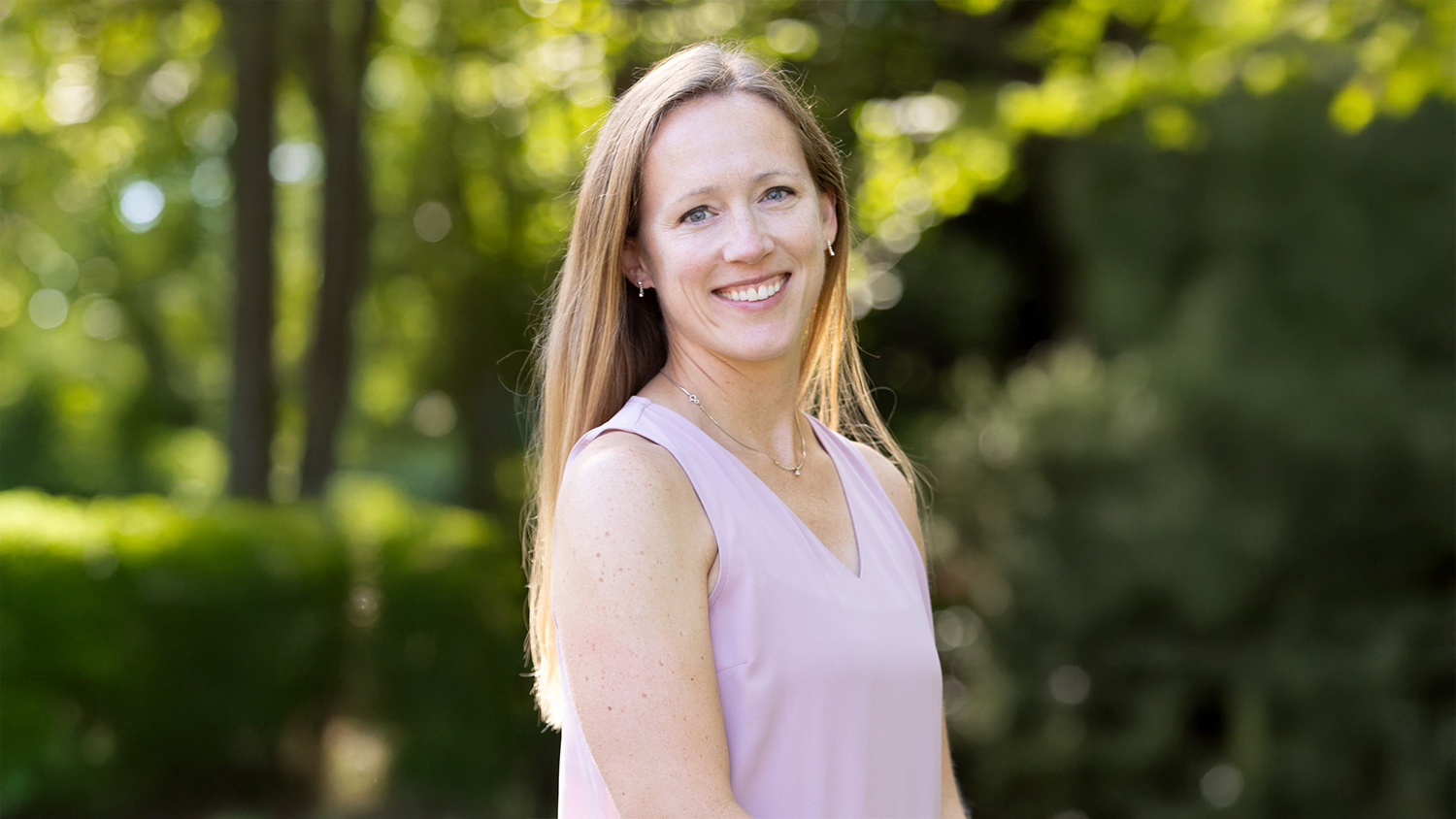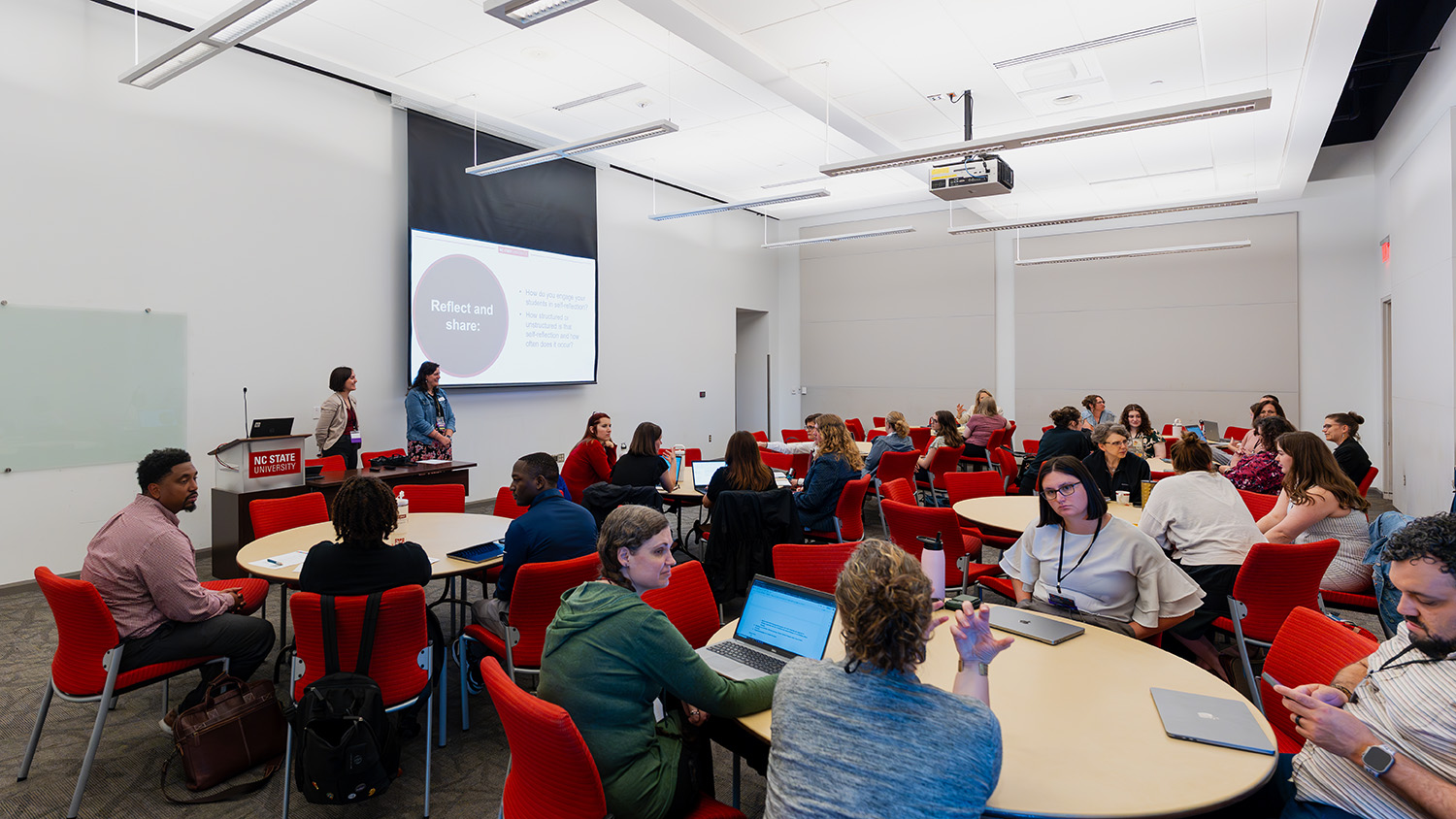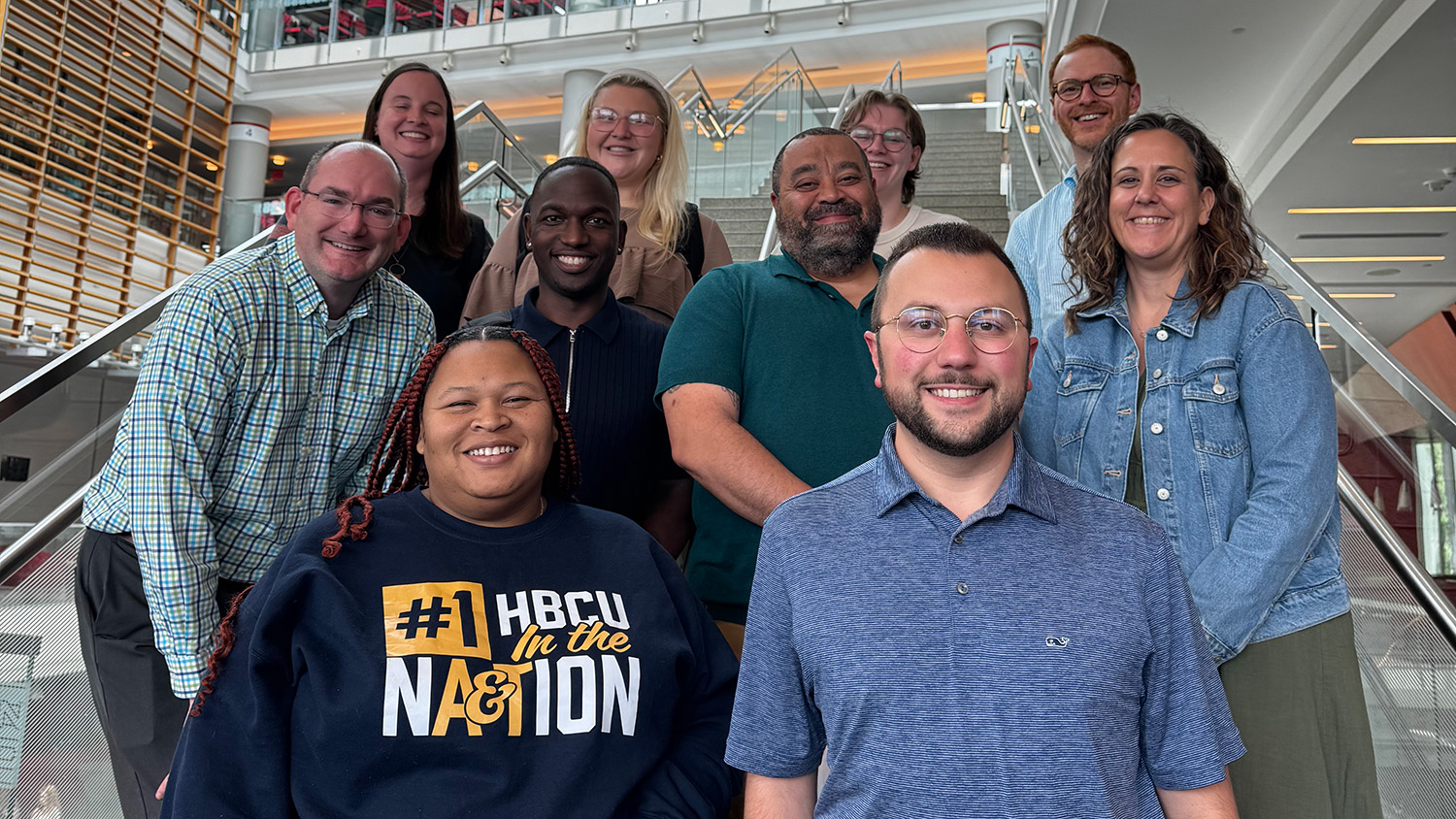Annual Teaching and Learning Symposium
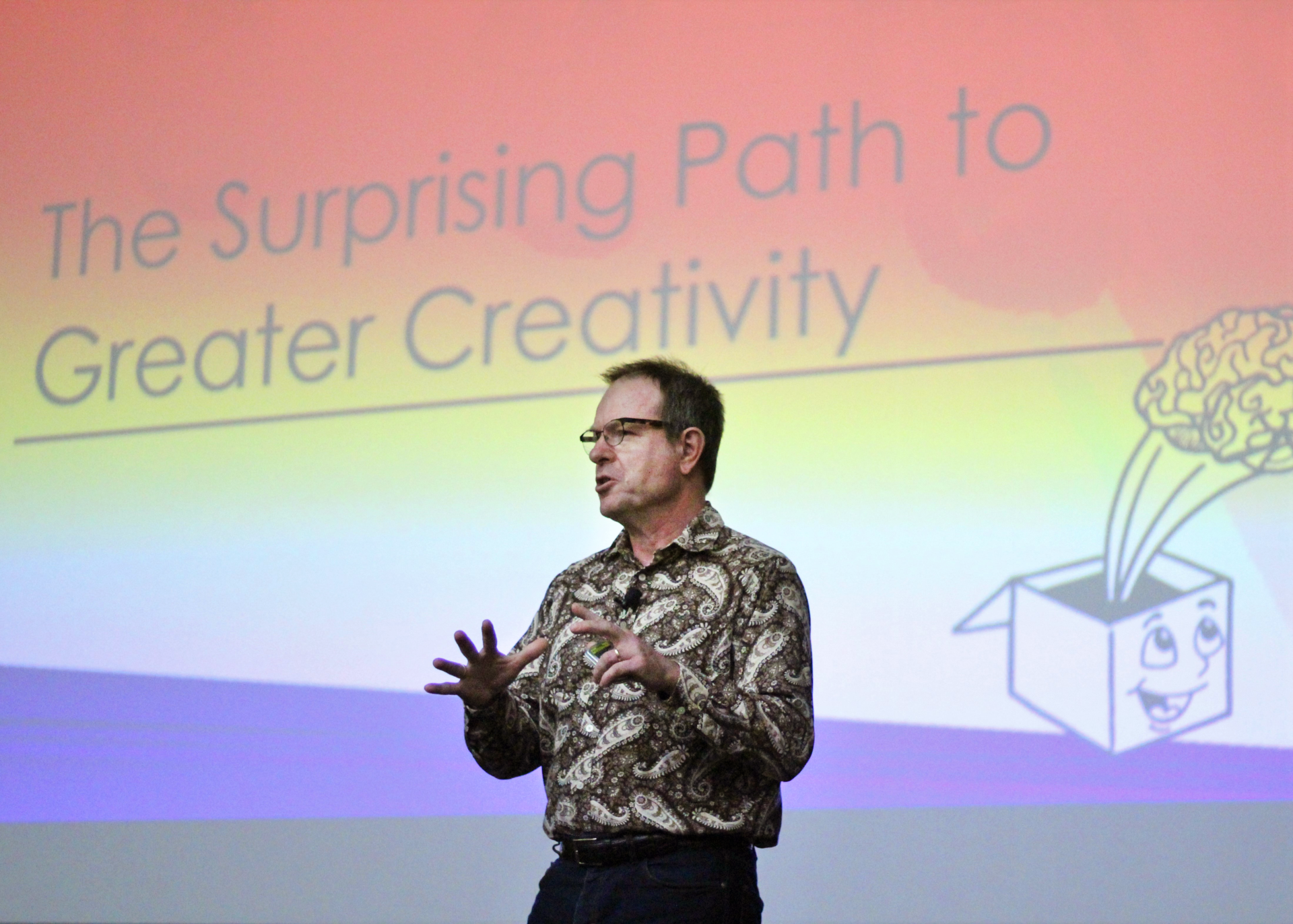
By: Abigail Ayers
[lead]Every year, NC State’s Office of Faculty Development hosts a Teaching and Learning Symposium, a one-day event for faculty and staff to come together to share and reflect on their teaching. [/lead]
“The Symposium is one of our signature events highlighting the outstanding work of our faculty in the realm of teaching and learning. It is here we celebrate the innovative efforts of our faculty to transform their courses and pedagogies, and create a community around those efforts,” explained Dr. Diane Chapman, Director of the Office of Faculty Development. Faculty at the symposium present posters and workshops which illustrate their innovation and scholarship of teaching and learning (SoTL). A number of TH!NK Faculty presented how they introduced critical and creative thinking into their classroom environment. The symposium provides a venue for faculty to share teaching strategies and enhance teaching skills to improve the classroom environment. This year’s keynote speaker, Dr. Keith Sawyer, a cognitive psychologist from UNC-Chapel Hill, spoke to the value of building students’ creative thinking skills. He included his personal account and approaches to avoid regurgitative learning.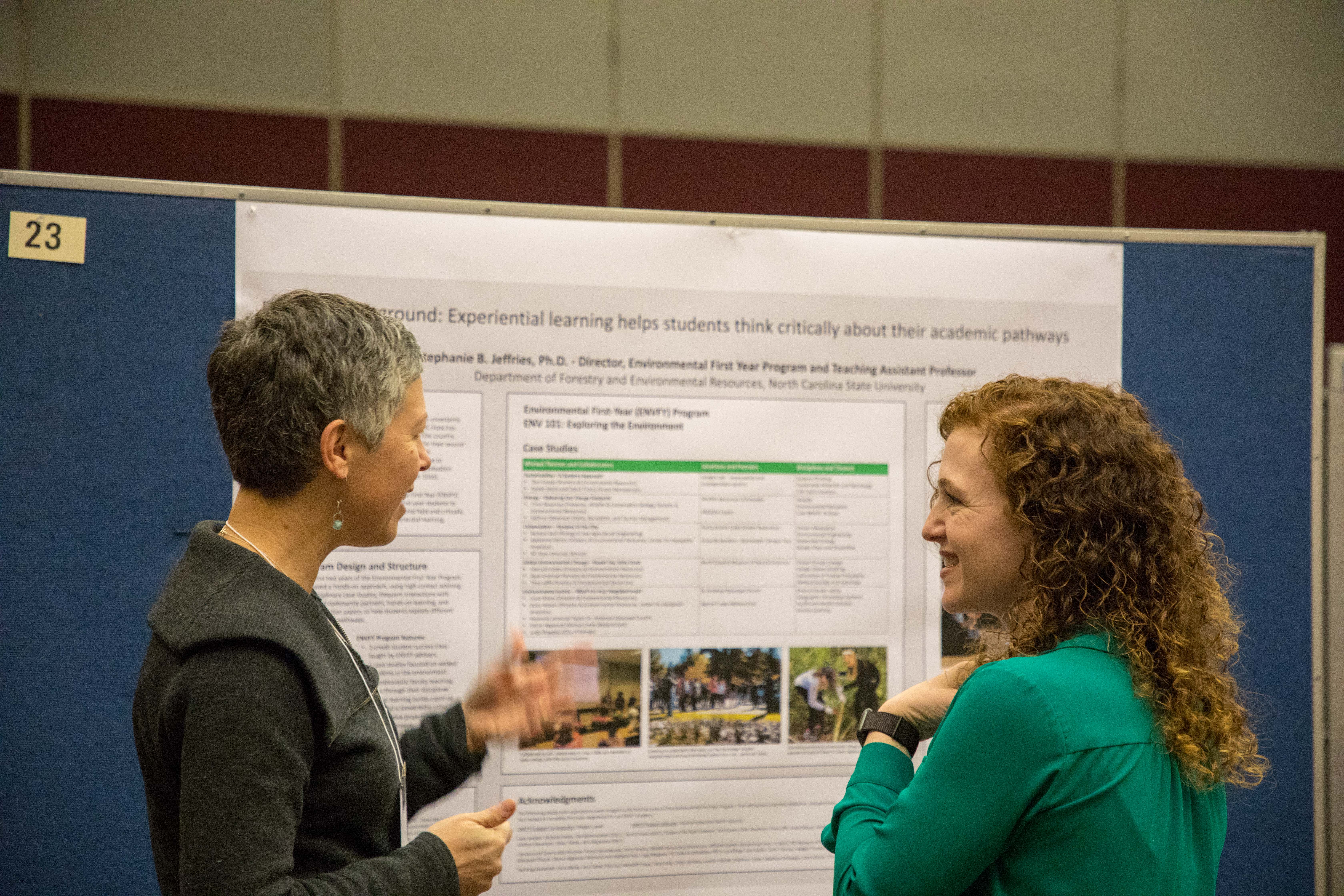
Dr. Maria Gallardo-Williams, TH!NK Fellow and Teaching Professor in the Department of Chemistry, presented a collaborative poster with TH!NK Fellow Dr. Lisa Parks, a Teaching Professor in the Department of Biological Sciences, and Dr. Sue Carson, director of TH!NK and a professor in the Department of Plant and Microbial Biology, which discussed the outcomes of the TH!NK Researchers Program. The TH!NK Researchers Program is designed to help teachers build upon their interest in further enhancing the critical and creative thinking skills in the classroom environment through the TH!NK Faculty Development Institute. The program primarily helps faculty gain a better understanding of how to publish research through the research design process, data collection, data analysis, and grant funding.
Dr. Jennifer Stanigar of the Office of Faculty Affairs presented a poster which discussed the background of the TH!NK Initiative at NC State. She highlights the differences between the instructional strategies used to implement critical and creative thinking in STEM and Non-STEM courses. Dr. Julianne Treme of Agricultural and Resource Economics presented a concept map as a resource for teachers to use which encourages critical thinking and notes the importance of visualizing relationships amongst things discussed in the classroom. By presenting different instructional strategies and different resources to enhance learning, faculty at the symposium are given a plethora of ideas to provide a more active learning environment for their students.
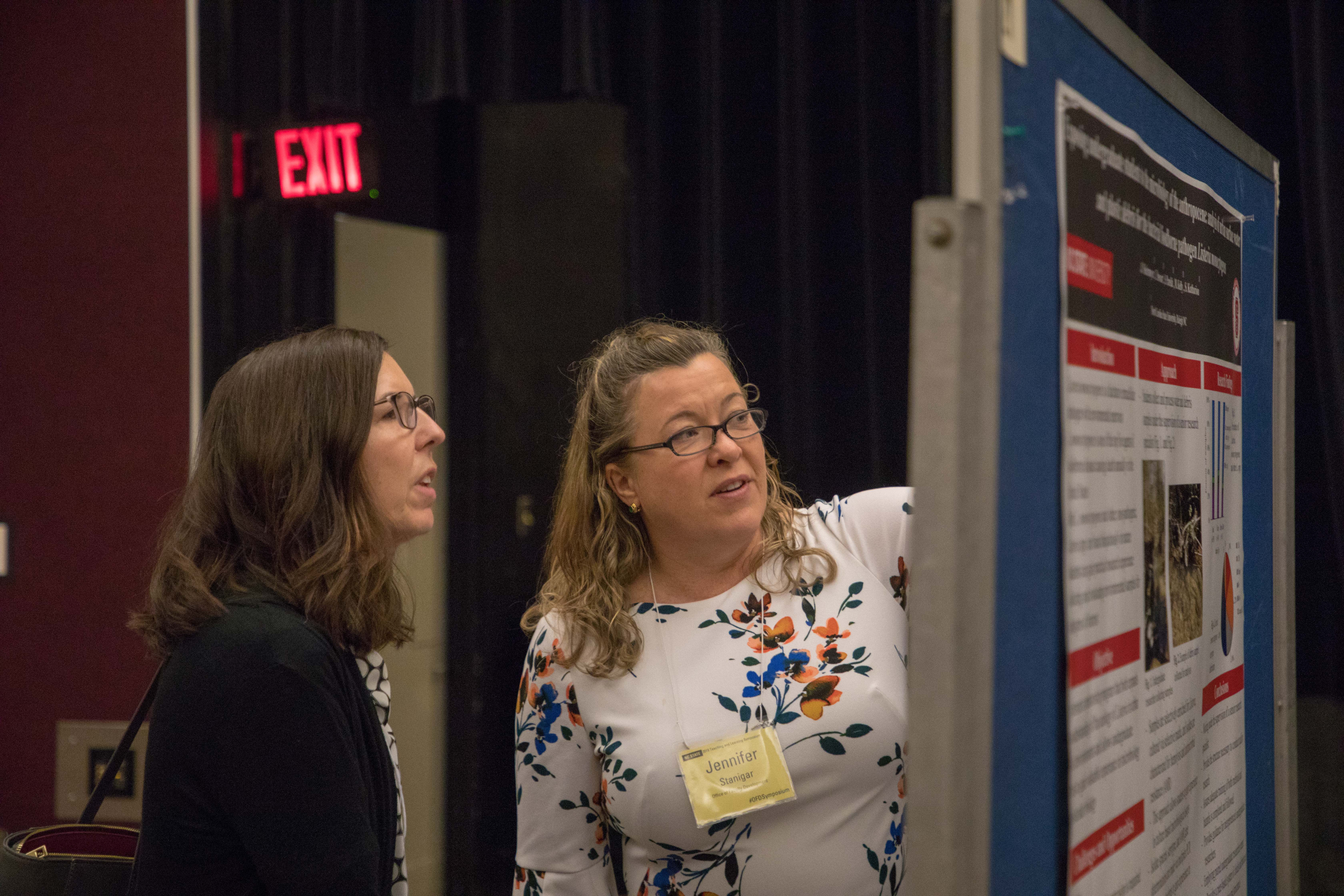 Dr. Lisa Paciulli of the Department of Biological Sciences and Dr. Christin Phelps of the Department of English both presented posters that discussed their own approaches to implementing more creative and active learning into their classroom. Dr. Paciulli teaches a large, introductory biology course while Dr. Phelps teachers smaller, higher level English courses. Such diversity in class structure provides instructors at the symposium a variety of approaches to introduce more critical thinking into the classroom. Dr. Phelps describes the symposium as a way for faculty to discuss different approaches to learning objectives that help students find where they are and better prepare them for the future. Both note that personalized learning that focuses on creative approaches to real-world challenges and studies forms engaged and critically thinking students.
Dr. Lisa Paciulli of the Department of Biological Sciences and Dr. Christin Phelps of the Department of English both presented posters that discussed their own approaches to implementing more creative and active learning into their classroom. Dr. Paciulli teaches a large, introductory biology course while Dr. Phelps teachers smaller, higher level English courses. Such diversity in class structure provides instructors at the symposium a variety of approaches to introduce more critical thinking into the classroom. Dr. Phelps describes the symposium as a way for faculty to discuss different approaches to learning objectives that help students find where they are and better prepare them for the future. Both note that personalized learning that focuses on creative approaches to real-world challenges and studies forms engaged and critically thinking students.
The keynote address by Dr. Keith Sawyer focused on forms of teaching which encourage active learning and collaborative creativity in the classroom. He also discussed criticism faculty may face when implementing these strategies and provided guidance on how to overcome it. His presentation provided faculty different perspectives on the forms of active learning that foster critical and creative thinking, such as having students approach authentic problems and work collaboratively.
“So far it’s [the TH!NK Program] provided me with a plethora of opportunities to think about and rethink how I’m approaching the learning objectives in my class to find more ways to meet students where they are and better prepare them for their futures,” states Dr. Phelps on the resources TH!NK provides.
For more information on the TH!NK program or to learn how to participate in any upcoming workshops and training, please visit its website. To access resources at the NC State Office of Faculty Development, visit https://ofd.ncsu.edu/.
- Categories:
